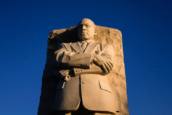
September – At work among all people

This month we read the passages that follow Jesus at work amongst His people. He heals the sick and offers love and compassion. He is transformative and restorative, an example of the transformative work that we are responsible for today in our communities.
6 September, Mark 7:24-37
The story begins with Jesus venturing into Gentile territory, where he meets a Syrophoenician woman who accosts him, in a bid to persuade him to heal her daughter.
Her request is rejected on the basis of her ethnicity: “it is not fair to take the children’s bread and throw it to the dogs”. She responds to Jesus by pointing out that even dogs can catch crumbs that fall from the table. As a result of her clever interpretation of Jesus’ remarks, he grants her petition to heal her daughter.
Through Jesus, the God of Israel is shown to be at work among all people. This is further emphasised in the following story, where Jesus heals another Gentile.
13 September, Proverbs 1:20-33
This passage introduces us to Wisdom, a persona who offers wise counsel, as well as an authentic feminine experience and interpretation of the divine. Wisdom here is calling out to those who would heed her counsel and follow her ways, ways that are characterised by justice, hospitality and love of God.
Heeding Wisdom’s advice is to embrace a spirituality of roads and journeys, of public places and open borders, of nourishment and celebration – rather than a spirituality of categories, doctrines, systems and boxes.
This is a spirituality that offers connection and integration, rather than the separation and differentiation that has characterised Christianity for centuries. As such, Wisdom offers us the potential to be both transformative and restorative within our communities.
20 September, Proverbs 31:10-31
The famous text about “a capable wife” has infamously been used to categorise women’s roles as confined to the household. This actually does no justice to the text, which presents the wisdom of women as having an essential role in the social and historical context of the early post-Exile existence of God’s people.
Families faced with the critical task of re-establishing themselves economically and religiously, depend far more on women than in more stable periods. The passage describes the wife as a manager of an extended and productive family household, and a counsellor to husband and children.
Just as the husband of this capable wife “will have no lack of gain” so also Wisdom will exalt and honour the man who prizes and embraces her. It is worth asking the question: who is the biblical Wisdom and how might her story affect us and the church today?
27 September, Psalm 19
This psalm is a hymn that celebrates not only God’s role in creation, but how the universal creation lovingly bears witness to God. In breath-taking poetry it describes how the whole universe sings of God’s glory, a wordless yet all-encompassing song that penetrates across the farthest reaches of creation.
The psalmist also understands the destructive power of a life lacking in self-reflection, where mindless engagement with a broken world runs the risk of a life governed by errors of the heart and resultant sin. Having begun with the heavens singing God’s glory, the psalm ends with a personal prayer, where heart, mouth and action unite to keep the author in right relationship with God.
This Lectionary Reflection was prepared by Rev. Elizabeth Raine of Wauchope Uniting Church and the Southern Zone Minister for Mid North Coast Presbytery




























































